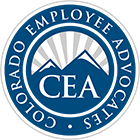On June 6, 2023, Gov. Jared Polis signed a bill that is intended to ease the requirements for bringing a discrimination claim against an employer. The new law also strengthens the state’s anti-discrimination laws in several ways. The bill, known as the Protecting Opportunities and Workers’ Rights Act (“POWR”), became effective on August 7, 2023.
Changing the standard for workplace harassment claims
Perhaps the most important provision of the bill is the change it makes in the standard for proving workplace harassment. Under federal law and previous Colorado law, harassment is defined as “severe or pervasive conduct.” The POWR Act changes the definition to conduct that is “subjectively offensive” to the worker bring the claim and “objectively offensive” to members of the same class as the worker alleging harassing conduct.
The Act also defines three conditions of workplace harassment.
- Submission to the conduct is explicitly or implicitly made a condition of the worker’s employment.
- Acceptance of or objection to the conduct is used as a basis for an employment decision affecting the employee.
- The conduct has the purpose of unreasonably interfering with the employee’s work performance.
An employer may defend against a claim of harassment by a supervisor by proving that it had a program in place to prevent harassment and that the employee bringing the harassment claim failed to use it.
Nondisclosure agreements
The POWR Act specifies the requirements for enforcing a nondisclosure agreement against a former employee. To be enforceable, a nondisclosure agreement must apply equally to all parties and must explicitly state that the agreement does not prevent the employee from disclosing facts of an alleged discriminatory or unfair employment practice.
Employees and Applicants with Disabilities
Unlike the majority of the act’s provisions, one section states that an employer is not liable for an adverse employment decision involving a person with a disability if there is no reasonable accommodation that would enable the disabled person to perform the essential functions of the job in question.
The POWR Act creates many new issues for both employers and employees. The advice of an experienced employment law attorney may be essential to assist a party in resolving an employment act claim under the new law.

